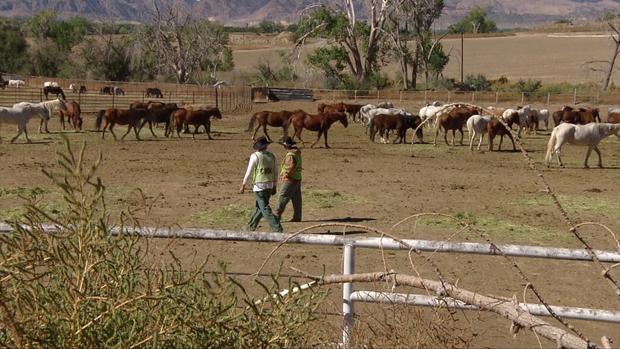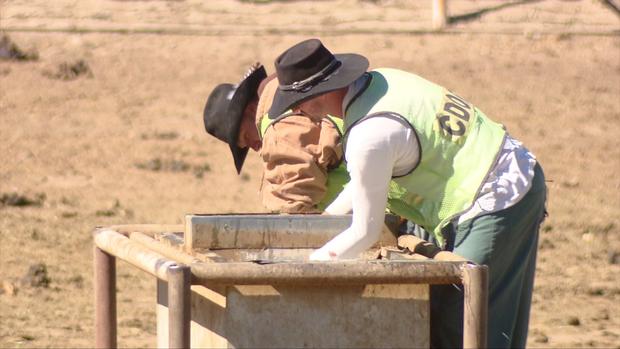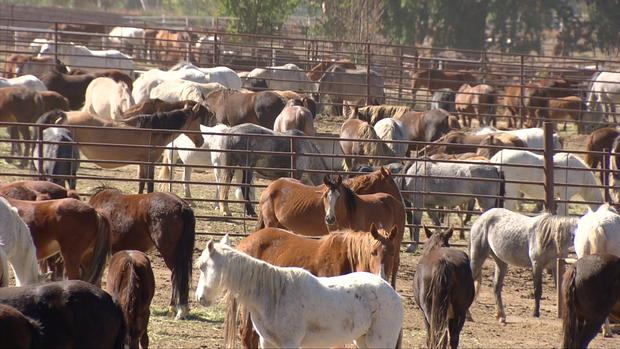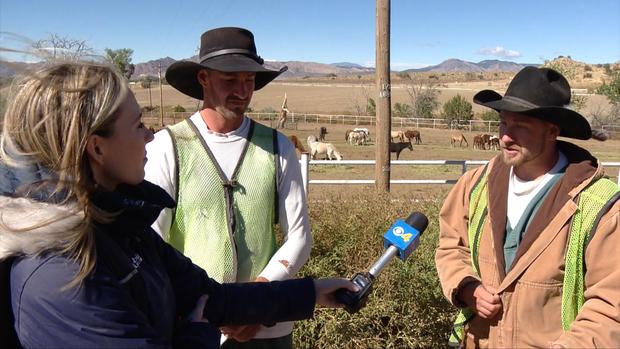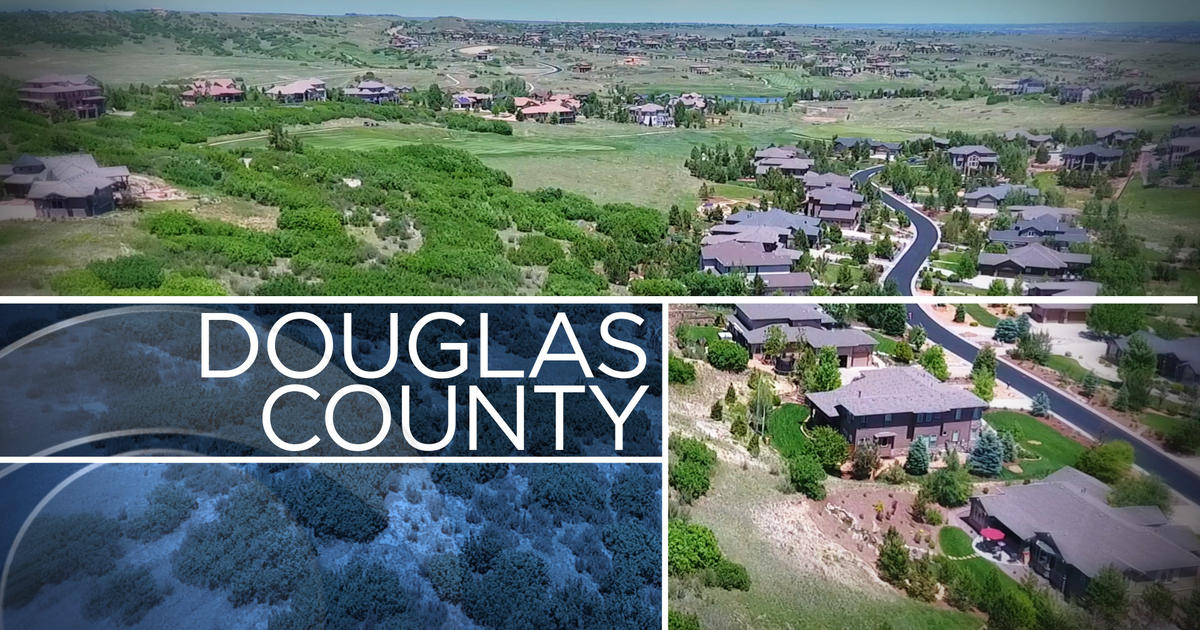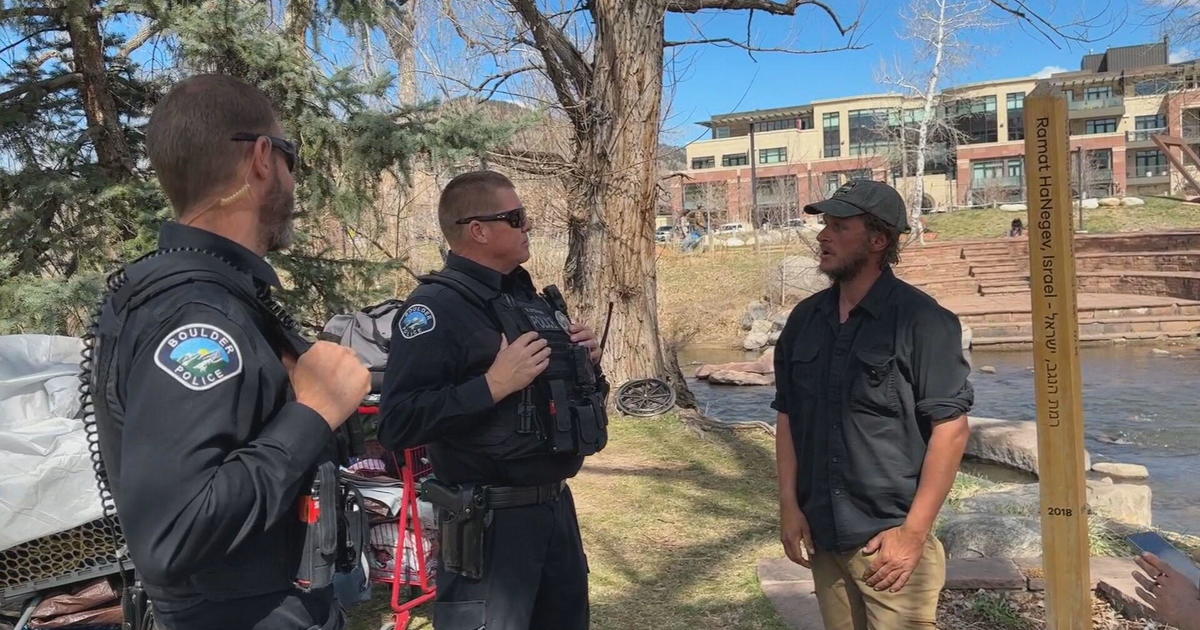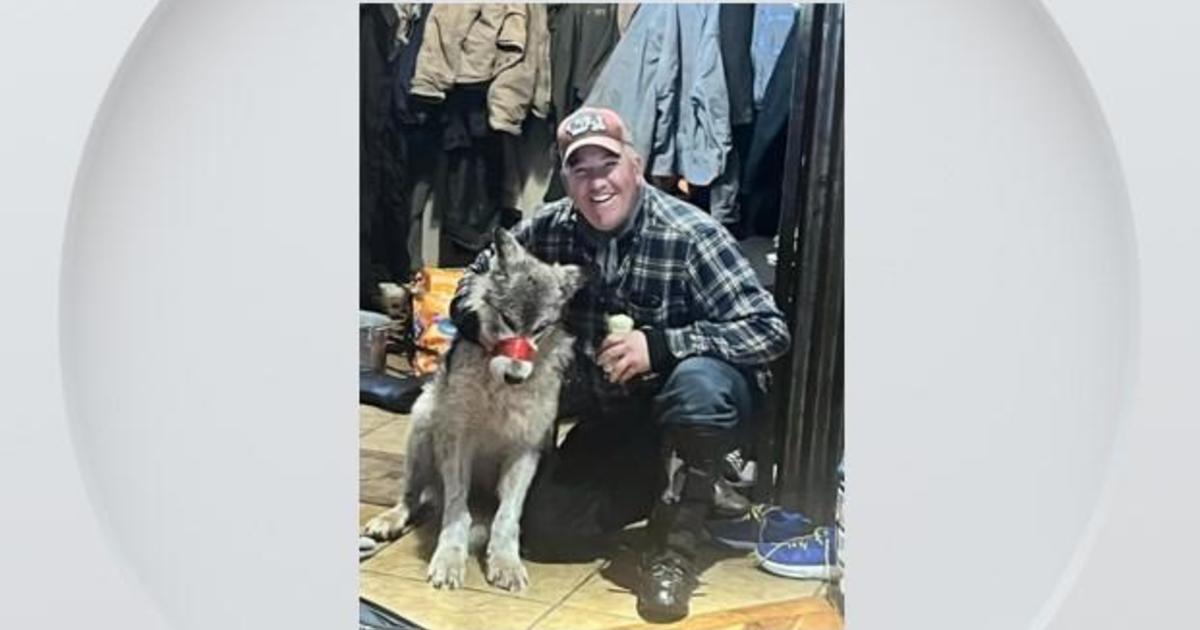'I Think The Horses Are A Lot Better Off Here': Meet Two Prison Inmates Who Care For Colorado's Wild Horses
CAÑON CITY, Colo. (CBS4) - The federal Bureau of Land Management says it's necessary to periodically remove groups of wild horses from the Sand Wash Basin, to protect the resources there. Once they're rounded up, the horses are sent to a state prison ranch in Cañon City, where CBS4 recently received a rare tour of the facility, and spoke with two inmates who care for the horses. They say, the animals have changed their life.
David Jackson, 38, is one of 35 minimum-security inmates who has been selected to take care of the wild horses that are brought in to the East Cañon City Prison Complex.
He and inmate Alex Cockrell, 32, say they work up to eight hours a day with the horses.
"It is pretty dang rewarding," Jackson said of the work.
The inmates give the horses feed and water, and clean out the water tanks. They have also learned how to trim the horses' hooves. Inmates also train the horses, and help prepare them for adoption, according to prison officials.
"You're taking care of something, and if you're not there, doing your job, you know, you're not just the one that suffers, but so are they," Cockrell said. "It's a really good program to learn the self satisfaction of a hard day's work."
Cockrell has been working with the horses for two of his four years as an inmate.
While rounding up mustangs out of the wild to be taken to the prison pens has been controversial, Cockrell believes it's for the best.
"I think the horses are a lot better off here than they are hungry on the range," Cockrell said. "They get taken care of here, especially like during droughts, their water gets checked every day here... they get a lot better food quality here... they get to eat every morning without traveling who knows how many miles to find a little bit of food."
But horse advocates say the horses are healthy and thriving in the wild.
Carol Walker photographs the mustangs regularly on the range, her pictures show the horses with shiny coats and robust bodies. She believes on the range is where they should stay.
"They are being treated like a disposable nuisance, and they really aren't," Walker said. "They are majestic creatures that deserve to live their lives, wild and free, and allow Americans to spend time with them on our public lands."
The federal Bureau of Land Management - the agency that runs and pays for the Cañon City wild horse program - says horses do tend to lose weight in transport from the range to the prison, but the roundups are necessary to protect the ecosystems and resources in the Sand Wash Basin.
While there have been concerns about possibly preventable horse deaths at the Cañon City facility, Cockrell says they work hard to keep the horses healthy.
"So for example, some of these horses, when they first get here off the trucks, a lot of them will look a little skinny, they don't look like they're in good shape, and then you come in, you do your job every day, and you start to see them put on weight, start to mellow out around people," Cockrell explained. "That's that's really nice, there's a lot of self satisfaction to that."
There are 2,382 wild horses at the Cañon City facility, according to the BLM. Cockrell and Jackson say working with all of them has been therapeutic, giving them hope for a career when they leave prison.
"Very privileged, I feel very, very fortunate, almost a stroke of luck, you know, I never thought I'd even have an opportunity like this," Jackson said. "Even if I feel a little sick, I still get up every day come out to work because it feels so much better just to be out here in the open, to be with the horses is truly awesome."
They wish more programs like this were available to inmates.
"It's just all around super rewarding, and the connection I feel... there's no words for it," Jackson said.
Prison officials say the Wild Horse Inmate Program has been around since 1986, and has grown from caring for only 450 horses to now having the capacity to hold up to 2,950 horses comfortably.
"Inmates and staff members who work for WHIP take pride in providing a safe transition for the wild horses, so that they can receive the care they need to go on to live long healthy lives," prison officials wrote in a statement. "This program not only gives the horse a second chance, but it also allows the inmates to perform an important service to the community and form caring bonds with the animals."
